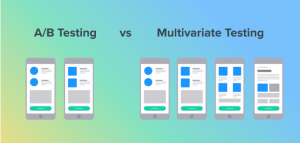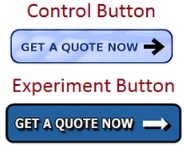Introduction
The purpose of this assignment is to teach the importance of definitions in bridging the gap in communication between people of differing technical understanding. This may be between a client and business or between members on the same team.
The assignment requires us to choose a technical term within our chosen industry and write three kinds of definitions, (a parenthetical, sentence, and expanded). This definition needs to be written with a specific audience and tailored to a situation we set.
My Situation: I’m outlining in detail how I plan on improving online sales/orders of a small business bakery. A/B testing will be a large part of determining whether changes to the website are having the desired effects on online sales.
My Audience: The business owners who are a middle-aged couple who run the shop.
Parenthetical Definition
Often A/B testing (experiment with two versions of a variable) can lead to valuable insights.
Sentence Definition
A/B testing is a testing methodology that compares two variants, champion(old) and challenger, of the same variable. This is achieved by randomly assigning users to either of the versions of the variables and then monitoring performance/metrics.
Expanded version
Etymology:
The A in A/B Testing refers to the old version or champion variable whilst B is the new version or challenger variable being tested to see if it will perform better(Unbounce).
History of AB Testing:
One way to test products and advertisements is to release it and hope for the best. However, this strategy is both time-consuming and expensive. In 1923, Claude Hopkins forever revolutionized this field through his book Scientific Advertising. He advocated that testing the product directly with the consumers is much cheaper and less time-consuming than having long discussions about features(Hopkins, page number needed). Hopkins is widely believed to be the father of split testing and is regarded as the first person to use coupon-based customer tracking; using key coded coupons to track customers and test the effects of different headlines and offers.
Uses:
A/B testing can be used to test a variety of different hypotheses. Generally speaking, this style of testing is used to test the consumer’s response to a product. The designing, marketing, sales and IT team may choose to test, at large, either the User Experience Design or User Interface Design(Kolowich, 2020). User Experience Design focuses on how the consumer feels about the product or service(Lampretch, 2019). For instance, Writers for a website may test out two different headlines or slogans to see which brings in more users.
Whereas, User Interface Design focuses on changes in certain changes on the website that makes the user feel(Lampretch, 2019). Graphic designers might use this in order to test the effectiveness of a colour scheme or layout for a button. Often even the smallest changes can make a big difference.
Web Developers might use A/B testing in order to test new features they’ve added to a website. These are only some of the uses or ways A/B testing can be applied.
Compare and Contrast:
A/B testing is different from Multivariable or multi-page testing. A/B testing focuses on two versions of one variable on one page, often the original and new.
However, in multivariable testing, the experiment tests more than two versions of one variable or sometimes multiple versions of more than one variable. Despite their differences multivariable and a/b testing are often limited to one page, unlike multi-page testing which involves changes across multiple pages. (Apptimize, 2018)

(Apptimize, 2018)
It is important to note the larger number of changes being tested the more difficult and time consuming it is since more traffic will be needed in order to accurately test the effectiveness of each change.
Example:
This is an example of how a minor aesthetic change can increase business. Francis Shovlin(1) wanted to improve the use of the A/B test methodology in order to see which button led to more clicks.

(Gabbert, 2020)
Half the users were shown the Original Button (A) and half the users were shown the new button (B). The experiment lasted seven weeks during which the total visitors to each variation and total clicks on each button were recorded. This led to an increase from 18.34% to 20.38% in conversation rate; the percentage of visitors to the site who asked for a quote(Gabbert, 2020).
Works Cited
Apptimize. “When to Use Multivariate Testing vs. AB Testing.” Apptimize, Airship, 10 Sept. 2018, apptimize.com/blog/2018/09/multivariate-testing-vs-ab-testing/.
Burstein, Daniel. “Eight Lessons from the Father of Data-Obsessed Marketing.” MarketingExperiments, MECLABS, 6 June 2016, marketingexperiments.com/digital-analytics/data-lessons-claude-hopkins.
Gabbert, Elisa. “24 Of the Most Surprising A/B Tests of All Time.” WordStream, WordStream, 7 Feb. 2020, www.wordstream.com/blog/ws/2012/09/25/a-b-testing#Lyons.
HOPKINS, CLAUDE C. SCIENTIFIC ADVERTISING. CLYDESDALE PR LLC, 2020.
Kolowich, Lindsay. “How to Do A/B Testing: A Checklist You’ll Want to Bookmark.” How to Do A/B Testing: A Checklist You’ll Want to Bookmark, Hubspot, 13 Apr. 2020, blog.hubspot.com/marketing/how-to-do-a-b-testing.
Truong, Sylvain. “The Art of A/B Testing.” Medium, Towards Data Science, 3 Oct. 2018, towardsdatascience.com/the-art-of-a-b-testing-5a10c9bb70a4.
Unbounce. “What Is A/B Testing? A/B Tests Explained (with Examples).” Unbounce, Unbounce, 20 May 2020, unbounce.com/landing-page-articles/what-is-ab-testing/.
Leave a Reply